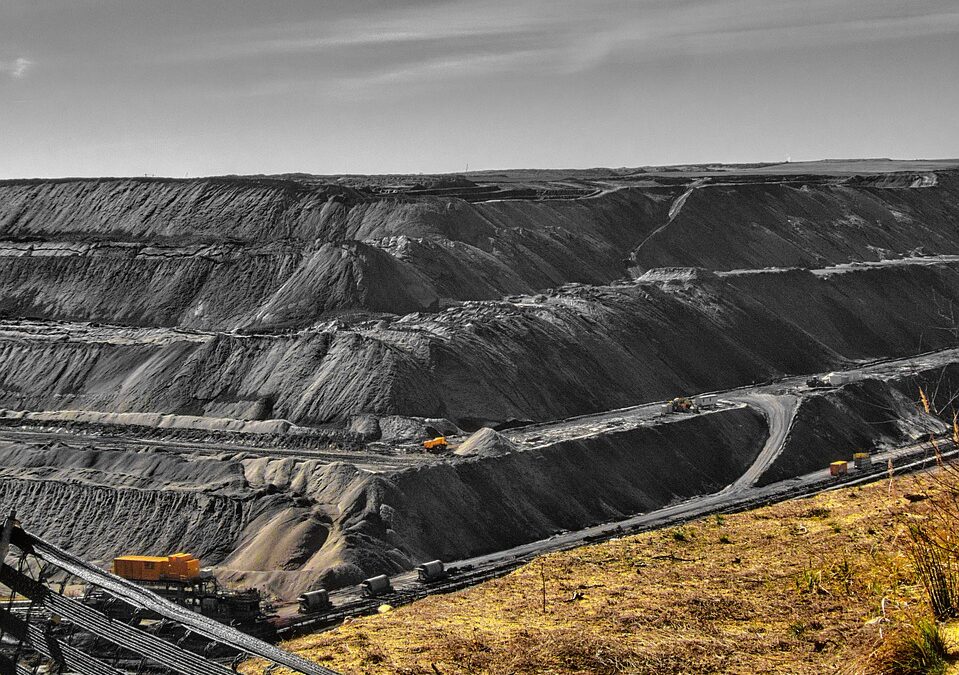The Polish government has ordered an investigation into the environmental impact of a Czech-owned coal mine in Germany, just over the border from Poland.
The decision comes amid a dispute over a separate coal mine in Poland that has resulted in Warsaw being hit with €500,000 daily fines after Prague launched a case against it at the Court of Justice of the European Union (CJEU). The Polish government recently criticised the Czechs’ “irrational” stance on the issue.
The Jänschwalde lignite mine in Brandenburg has since 2016 been owned by Prague-based Energetický a průmyslový holding (EPH). The open-cast mine fuels the neighbouring 3,000 MW power station, which is the third-largest in Germany.
Two municipalities on the Polish side of the nearby border, Brody and Gubin, have in recent years complained about alleged environmental damage caused by the mine, in particular its impact on groundwater supplies, reports TVN24.
This week, Poland’s environment and climate ministry announced that it has ordered inspections to be carried out by the Polish Geological Institute as well as the provincial inspectorate for environmental protection.
The major of Gubin, a town of 17,000 people, does not hide the fact that he sees the case against the mine in Germany as being linked to Czech complaints against Poland’s Turów coal mine. The latter case was similarly based on concerns from Czech residents about the Polish mine’s impact on water supplies.
“It seems to me that it cannot be the case that we are harming the Czechs and the Czechs are not harming us,” Barski told the Polish Press Agency (PAP). “We can undoubtedly show the European Union that the issue of the conflict around Turów is not a one-sided problem.”
Ryszard Kowalczuk, the village mayor of Brody, however, said that the fact that the German mine is managed by a Czech company was only of “secondary importance in the whole matter”. He also noted that the issue had been a problem for years.
The two Polish municipalities have sought compensation from the mine owners but have not taken the issue to court due to their inability to put together expert evidence to make a case. They have reportedly sought government assistance for years, but without a response until now.
Mining in Jänschwalde has already been the subject of debate in Germany. In 2019, operations were suspended following protests by German environmentalists, who argued that the excavation threatened EU-protected areas. Last year, however, the 80-square-kilometre lignite mine obtained a permit to continue operating until 2023.
Early this year, the Czech Republic took Poland to the CJEU over Turów, arguing that the mine had had its licence renewed without proper environmental approval. The European Commission supported the Czechs’ case.
In May, the CJEU issued an interim order requiring the mine to cease operations. But Poland has so far refused to comply, noting that Turów provides coal that generates 4-7% of the country’s electricity. As a result, the CJEU last month ordered Poland to be fined €500,000 a day until the mine was closed.
The Polish government has attempted to resolve the dispute through negotiations with its Czech counterpart. But talks broke down at the start of this month, with Polish ministers blaming the Czechs for being “irrational” and rejecting a “very good Polish offer”. The daily fines have meanwhile reached almost €15 million in total so far.
Main image credit: Jörg Peter Rademacher/Pixabay

Maria Wilczek is deputy editor of Notes from Poland. She is a regular writer for The Times, The Economist and Al Jazeera English, and has also featured in Foreign Policy, Politico Europe, The Spectator and Gazeta Wyborcza.




















